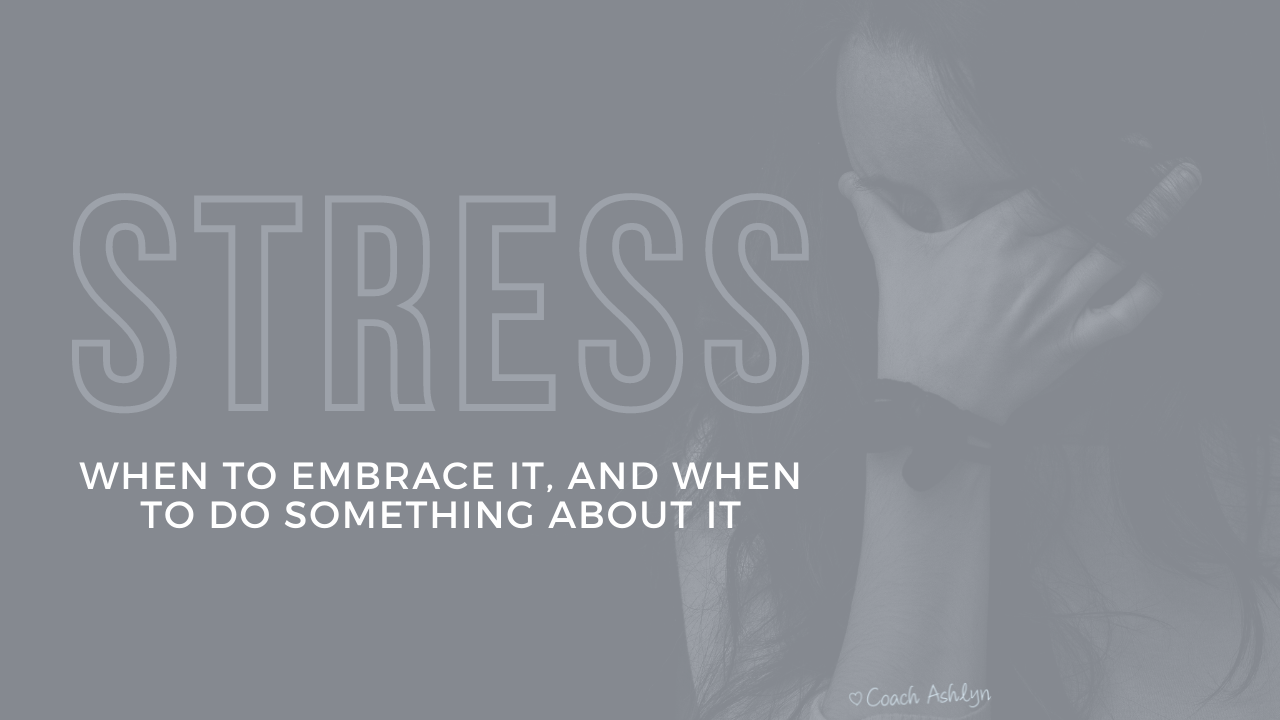
Stress: When to Embrace it, and When to do Something About it
Oct 01, 2021Previously, we talked about different factors that can cause your weight to fluctuate. Today, I, Coach Brooke, want to expand on how stress can impact not just your weight but your overall health.
Stress can be a good thing, but as we all know, too much of a good thing can quickly become a bad thing.
Too much sun can result in sunburn and leave you looking like a tomato.
Too much training leads to poor recovery and increases your chance of Injury.
Too much PB can make your stomach upset, and before you know it, your fat macros are gone.
Too much stress leads to low energy, poor recovery, and slows your metabolism.
As I said, stress isn’t inherently bad. Our bodies thrive off of stress and need it to adapt and grow. Small amounts of stress can provide benefits like improved memory and increased attention span.
However, when our bodies don’t get adequate time to rest and recover, that stress begins to pile up and causes some wild things to happen.
How cortisol works
Cortisol, our stress hormone, is catabolic, meaning cortisol causes fat redistribution, as well as the breakdown of lipids and body tissues, including muscle, skin, and bone (this is a good thing!)
Our bodies produce cortisol so they can respond to external stressors. You may have heard the term “fight or flight,” and that’s exactly what I’m talking about here.
Cortisol frees up energy in the form of fatty acids and glucose in order to give us the QUICK energy we need to “Fight” or “Flee.”
Fortunately, we don’t run the risk of being chased by a tiger on our way to work.
Unfortunately, though, our bodies don’t perceive that stressful deadline or emergency phone call on the way to the office as any less threatening than needing to run for our lives.
If we only encounter these stressful situations every once in a while, the cortisol spikes we experience aren’t a big deal. It’s when our cortisol levels remain chronically elevated without any opportunity to SLOW down that it can start affecting almost every other body system, including:
- Sex hormones
- Cardiovascular health
- Digestive health
- Adrenal health
- Liver detoxification
- Insulin sensitivity
- Thyroid health
Don’t stress about it
Did I just tell you not to stress about being overly stressed? You bet!
Remember, a short-term spike in cortisol isn’t a bad thing, and even if you find yourself chronically “stressed,” you are not doomed forever!
You get to control your recovery! And what’s even better is that you can do so for FREE, with basic lifestyle, training, and nutrition modifications.
Here are a few ways to get your cortisol levels in check:
- Decrease your intensity in the gym.
- Improve the nutrient quality of your food.
- Sleep more.
- Practice meditation and journaling.
- Improve gut health.
- Get outside in nature.
There are so many ways to reduce stress. What’s important is that you find what works for you! Not everyone loves journaling and meditation, and that’s fine. If you find cooking, reading, or cuddling with your partner relaxing, do that!
And please know that one day of journaling or one night of better sleep won’t magically make all your stress disappear. It will take time, but with patience and consistency, you can reduce your stress and improve your overall health!
For me, I like to de-stress by sleeping. I once had a coach tell me to sleep as often as possible without getting fired or divorced!
